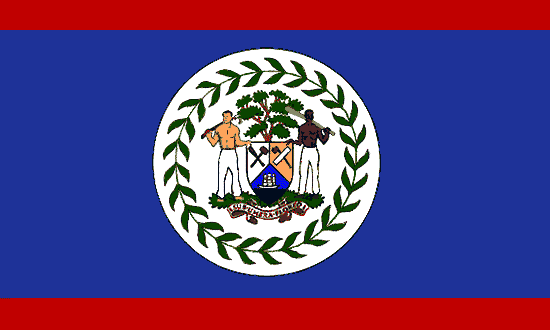The Battle of St George’s Caye is celebrated throughout Belize on September 10 as the defining moment in the birth of the country, putting into motion a long train of events that would eventually lead up to independence almost two hundred years later.
And by any measure, it’s one of the most colourful events ever to take place in the Caribbean; a part of the world with no shortage of romantic, exotic tales and scenes straight out of Pirates of the Caribbean.
In fact, we’ve often wondered why someone hasn’t made a movie about the amazing battle of St George’s Caye.
Just picture it – a rag-tag militia of very colourful settlers and African slaves deciding to stand up to a well-trained and heavily armed professional military force from Spain, going into battle completely outnumbered and outgunned with the beautiful Caribbean as a backdrop, complete with sandy islands, swaying palms and sparkling waves breaking over a stunning reef.
Our story begins with a town hall meeting where it’s announced that Spain is sending a large force to invade and subjugate the English-speaking settlers, known collectively as the Baymen, and African slaves who had been eking out a living mostly by cutting logwood, which was highly valued for producing an indigo dye used in the British textile industry.
Living far from any seat of government or authority, these were hearty souls who had mixed over the years and developed a rather unique society with their own way of doing things. It is said that pirates were welcome, but the authoritarian rule of Spain definitely was not.
When word of a Spanish invasion arrived, a referendum was held to decide whether to evacuate, or stand and fight, with the final vote in favour of standing to defend what was now considered to be home.
Before long a Spanish fleet of 32 vessels, some 500 sailors and 2000 soldiers was on its way.
A defence was quickly organised, led by Captain John Moss in command of the HMS Merlin and a small fleet of three sloops, the Towser, Tickler and Mermaid, each with a crew of 25 men and a compliment of light cannon ranging from one eighteen pounder, a short nine pounder, four 6 pounders and a couple of 4 pounders. There were also two schooners, the Swinger and Teazer, and eight gun-flats, each carrying one 9-pounder and 16 men.
Except for the crews of Towser and Tickler, the vessels were manned by volunteers from the “Colonial Troops”. The Baymen, for their part, had 700 fighters of all colours and descriptions, Belize already being well on its way as a multicultural melting pot.
There’s no doubt it was a colourful group fuelled by a deep desire to remain free and no doubt a flagon or two of rum.
The Spanish fleet was spotted approaching the Belize Great Barrier Reef, and the battle began on September 3rd, 1798 when the Spanish attempted to pass over the shoals near St George’s Caye, but were successfully repelled.
Victory finally came a week later, on September 10th after a two and a half hour engagement beginning with the largest Spanish vessels opening fire and attacking, and ending with their flotilla in disarray, cutting their cables and retreating with the Baymen in hot pursuit until darkness made navigation through the reef too hazardous.
The Spanish continued their retreat back up to the Yucatan and never again tried to invade Belize.
The leaders of the Baymen later wrote back to England that if it were not for the valour and fighting capabilities of the many slaves who took part in the defence, with everyone fighting together under the cry of “Shoulder to Shoulder,” victory would never have been possible.
The battle of St George’s Caye has always captivated historians with its combination of brilliant tactics, sheer courage and the solidarity of the defenders. For Belizeans, it marks the moment when the people of the settlement, of all races and creeds, decided to stand “shoulder to shoulder” to defend something that even back then they recognised as worthy of fighting for.
One hundred years later, in 1898, the 10th of September was declared a public holiday, and today it continues to be celebrated with gusto.
Imagine if those early Belizeans knew that almost two hundred years later their valour would be rewarded when the former colony of British Honduras, on September 21, 1981, joined the rest of the world as a fully independent, sovereign nation, respected throughout the region as a bastion of democracy and free speech as well as a model of environmental sustainability.
And in today’s world, where environmental sustainability is more than just a buzzword, Belize does stand out as something special, as being the country many people say coined the term “eco-tourism” and, as a new, developing nation, made the conscious and sometimes difficult decision to carefully develop rather than just exploit its justly famous natural assets.
Put in this context, it’s easy to understand why even today its citizens are so passionate about Belize and continue to fight to protect what makes their country so special. That reef on which their ancestors fought with its hundreds of pristine cayes, sparkling clean water and abundant marine life remains very much the way it was back in 1798, largely due to the efforts of today’s Belizeans who recognise the same thing their ancestors did – that this is a very special country that deserves protection.
We think those early defenders at St George’s Caye would be proud.
